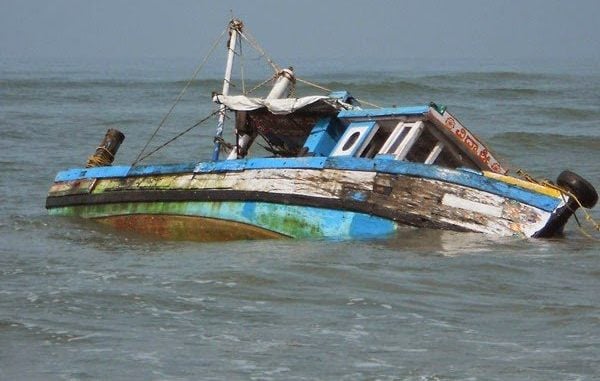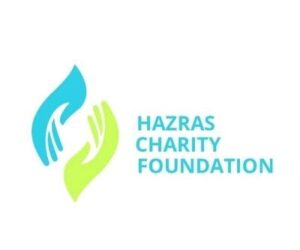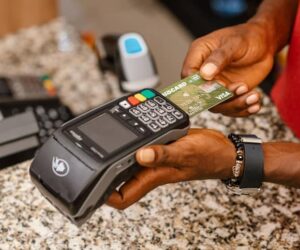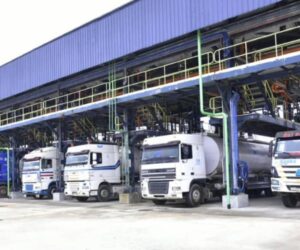1
LAGOS – Experts in the Nigerian maritime sector have traced frequent boat mishaps and deaths on waterways to weak regulations.
Thus they have sent out an urgent call to the government and maritime regulatory agencies to engage in proactive measures to stem the tide, rather than taking reactive measures.
Inland water transportation is a major mode of transportation, particularly for those who live in the riverine areas, and states with water connectivity to other states.
Also, it is more economical for the people to travel, move their goods and services to the hinterland and coastal communities, which are surrounded by rivers and creeks.
For them, boats and ferries are often the most viable means of transportation.
However, Daily Independent investigation on tragic occurrences along the nation’s waterways have revealed that movement and journeys in the territorial waters with boats or ferries are fraught with danger.
This is evidenced in the alarming frequency of boat mishaps, which had claimed countless lives in the past years, and currently still claiming.
Analysts have challenged the government to apply the kind of energy they use during electioneering campaigns for safe water transportation campaigns to reduce accidents on Nigeria’s waterways to the barest minimum.
They also challenged the government to apply the kind of enforcement policies they use in tax collection or checking vehicles on the roads, to water transport to ensure that boats not fit to ply the waters are off the waterways both in the day and at nights.
As at the end of 2024, about 326 persons died in boat accidents in the country, with Niger and Kwara states recording the highest causalities of 92 and 90, an increase of 8.67 percent when compared to 2023 figures which stood at 300.
Some reports had it that death tolls in 2024 were up to 452.
In the first half of 2025, more accidents and deaths have been recorded in the country’s waterways than 2024.
About two weeks ago, boat accident reportedly wiped out five siblings in Benue State. Only their father and a child survived the mishap which occurred while they were returning from the farm where they had gone to harvest cassava.
Last Tuesday in Abaji, Kogi State, a boat accident occurred earlier and the state government confirmed 26 people died. However, as at weekend, about eight more bodies were recovered.
Ismail Aniemu, a maritime analyst, bemoaned unsafe practices of traveling on water without life jackets, not using crafts that are worthy to be on the sea, overloading, and night travel, “because there is need for navigational aid, like lighting.”
“Where you don’t have such aids that will guide you at night, people just take for granted that they already understand the terrain, so in the course of travelling, they will not see where there is a wreckage and the boat may just hit the wreck.
“Another factor is too many wrecks under our waters. When the water is at low tide, the water level is low, you will see all the wrecks, you will be seeing the wreck, the topmost part of the wreck, so your boat can avoid it.
“But, during high tide, the water will rise and cover the immediate surface of the wreck.
“So, boat operators or ferry operators will not see it, and they can hit it on speed, and that may force the boat to capsize,” Aniemu said.
Alhaji Mohammed Anefi, a frontline freight forwarder, did not spare the government for not paying adequate attention to the safety of waterways transport users.
Anefi, the Vice Chairman, International Freight Forwarders Association (IFFA), Ports and Terminal Multipurpose Services Limited (PTML) chapter, said the government is not doing enough to tame the menace.
“The same capacity with which they use to do electioneering campaigns should have been deployed to do safety campaigns.
“The same way that government goes from traditional rulers to traditional rulers, religious leaders to religious leaders, to campaign to them for election, should have been the same way it can converse to them for observance of safe practices while traveling by water. So we have not done enough enlightenment. We have not done enough sensitisation.”
Mohammed further stated: “I’m not saying they have not done at all, but it is far below 10% what should have been done.
“Do you know that because of the way people take religion very seriously, if their religious leader tells them that traveling by water without life jacket is wrong, stop it, some persons will quickly obey.
“Some persons also adhere very much to traditional rulership. If the traditional rulers say, from now henceforth, no more overloading or no more night travel in my domain, anybody caught traveling at night will pay a heavy fine. You will see that people will not take the risk to travel at night.
“They will not even have to overload. The government will do less to police the waters. I’m aware that the National Inland Waterways Authority (NIWA) has set up a kind of lifeguard force to prevent boat accidents.
“But, the truth is, if you get the real buy-in of traditional institutions, religious institutions, community leadership it will drop boat accidents drastically.
“Overloading will be taken care of. Night travel will be avoided. Travel without life jacket can be made a crime in communities that are coastal.
“Once you are caught, even though you traveled safely and you were caught to have traveled without a life jacket, you will pay a fine that is bigger than buying a life jacket. So, sensitisation has not been done enough.”
Proffering further solutions, Mohammed said, “You see how they police us in our own cars. They ask us to buy fire extinguishers, to buy seat cushion, to use the seat belt, to ensure your lights are working, to ensure your brake is working. You see all that conditions meant for car owners.
“Government has left boat operation, ferry operation to the whims and caprices of the artisanal investors and operators in that sector. So, there is poor or weak regulation. Very poor, very weak.”
Dr. Eugene Nweke of Sea Empowerment and Research Centre (SEREC) in a position paper of SEREC, lamented that incessant boat accidents on waterways have become recurring crises, which continued to undermine the country’s safety, security, and socio-economic stability.
He said that these challenges not only threaten the lives and wellbeing of citizens, but also expose deep institutional weaknesses within the nation’s enforcement and regulatory systems.
Nweke, a former National President, National Association of Government Approved Freight Forwarders (NAGAFF), noted that over the years, Nigeria’s inland waterways have recorded a disturbing number of fatal boat mishaps across Lagos, Niger, Kebbi, Anambra, Rivers, and other states.
He lamented that these accidents often result in the tragic loss of lives, destruction of properties, and erosion of public confidence in water transport as a viable alternative to road congestion.
Also, enumerating the main causes, the foremost freight forwarder noted that frequent boat accidents are largely attributed to poor enforcement of safety regulations, adding that many boats operate unregistered, overloaded, and without standard life-saving equipment.
“Untrained and unlicensed operators – most pilots lack professional training in navigation, weather assessment, and emergency response.
“Absence or inadequate navigational aids and infrastructure – lack of buoys, signal lights, and dredged channels make navigation hazardous, especially at night.”
He lamented the institutional overlap and weak coordination embedded in the system, saying that the National Inland Waterways Authority (NIWA), Marine Police, and State Waterways Authorities often operate in silos.
Nweke also cited socioeconomic factors, saying poverty and lack of affordable alternatives force commuters to use unsafe vessels.
He noted that NIWA and some State Waterways Authorities have initiated certain regulatory and sensitisation measures.
He was however worried on the impact so far, saying, “Enforcement remains weak. Most interventions are reactive — implemented only after major accidents.
“There is limited community engagement, poor data collection, and an absence of a coordinated national water safety strategy”.
SEREC, therefore, in a recommended policy interventions said the way out are strengthening safety regulations and enforcement, enforce compulsory registration and licensing of all watercrafts, mandate safety compliance audits and impose stiff penalties for violations; establish an independent Marine Accident Investigation Board, introduce mandatory certification and periodic retraining for boat operators and integrate water transport safety studies into maritime academies and local training centres.
Other recommendations are infrastructure development and navigation aids, regular dredging and clearance of waterways; install solar-powered buoys, lights, and tracking systems for all commercial boats; institutional reform and coordination, strengthening NIWA’s collaboration with LASWA, Marine Police, NEMA, and local councils.
• Establish an Inter-Agency Water Transport Safety Task Force for unified command and data sharing.
•Continuous nationwide awareness on water safety and lifejacket use.
•Empower local boat unions and communities as safety compliance partners.








